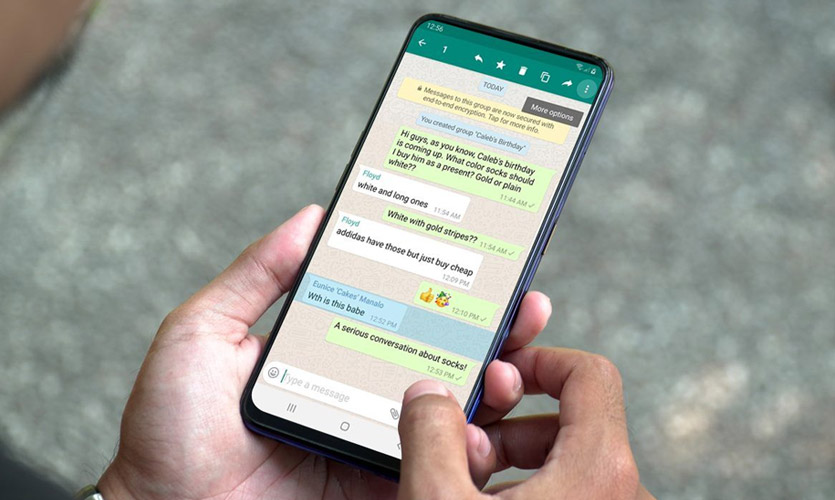The Narcotics Control Board (NCB) claimed to recover “shocking and incriminating” material in the WhatsApp chats of Aryan Khan and his co-accused. They claimed to have found this during their investigation on the seizure of banned drugs from a cruise ship off the coast of Mumbai. However, defending Aryan Khan, senior advocate Satish Maneshinde argued before the court that WhatsApp chats cannot be used to incriminate an accused. Recalling an earlier judgment of the court, Maneshinde stated that commercial quantities found on an accused can’t be used to incriminate another. “Mere chatting on the phone without corroboration doesn’t make an offence,” he added.
Electronic Records As Evidence ?
Two of the most important laws governing the viability of electronic records as evidence before the court are the Indian Evidence Act, 1872 and the Information Technology Act, 2000. The basic rule of the Indian Evidence Act states that electronic messages can be submitted but they should be produced in the primary form of evidence. A special provision was introduced in 2000 – Section 65A of the Indian Evidence Act, which states that the content of electronic records can be produced before the court, however they should be in accordance with Section 65B of the Indian Evidence Act. The major conditions under the Section 65B(2), to produce the certified copies of WhatsApp chats or any ‘electronic evidence’ in the secondary form as evidence before the court include – the device, the content of which is being produced should be in regular use over that period of time by the lawful owner; the device should be functioning properly during that period; the content produced in duplicate form must be the same as the original electronic record.
Again, Section 65B(4) of the Indian Evidence Act states that in order to produce an electronic record before the court a mandatory certificate must also be produced. “In order to admit the electronic record as evidence, it must be accompanied with a certificate signed by a person occupying a responsible official position in relation to the operation of the relevant device or the management of the relevant activities stating that the electronic record fulfils the above-mentioned four conditions,” it reads. Also, according to Section 22A of the Indian Evidence Act, contents from electronic records can only be accepted in the court if the device from which the content is extracted is submitted before the court; hence, just oral admissions of the content on the electronic records are not relevant.
The Role Of IT Rules 2021
The recently introduced The Information Technology (Intermediary Guidelines and Digital Media Ethics Code) Rules, 2021 enforce a regulation on virtually published content like news and current affairs, curated audio-visuals, etc. Amending the earlier Act the IT Rules, 2021 provide for the regulation of significant social media intermediaries and online publishers, and require certain intermediaries to identify the first originator of the information.
In May 2021, WhatsApp filed a lawsuit against the IT Rules, 2021 over the traceability clause in the new rules. WhatsApp argued that due to the traceability clause, the end-to-end encryption of the messaging app will be broken, weakening its privacy policy and depriving its users of freedom of speech and expression. WhatsApp also explained that traceability is not foolproof as users forwarding or copying messages can be misjudged as originators. WhatsApp said it might have to “turn over the names of people who shared something even if they did not create it, shared it out of concern, or sent it to check its accuracy.” However, the IT Rules, 2021 has no amendment over whether WhatsApp messages shall be used as evidence before the court.
Earlier Court Judgments
On previous occasions, both the Supreme Court and High Courts have accepted WhatsApp messages as primary and secondary evidence and have also denied its submission to shape a case. Recently, the Supreme Court has ruled that messages exchanged on social media platforms cannot be treated as evidence and the author of such WhatsApp messages cannot be tied to them. Chief Justice N.V. Ramana and Justices A.S. Bopanna and Hrishikesh Roy noted that, “What is evidential value of WhatsApp messages these days? Anything can be created and deleted on social media these days. We don’t attach any value to the WhatsApp messages.” In another case between P.Padmanabh v/s Syndicate Bank Limited, the Karnataka High Court observed that the electronic messages can also be sent due to computer malfunctions and cannot be admissible in the court. On the other hand, in a case between Ambalal Sarabhai Enterprise Ltd. v/s K.S. Infraspace LLP Limited and Another, the apex court accepted WhatsApp chats as evidence. “The WhatsApp messages which are virtual verbal communications are a matter of evidence with regard to their meaning and it’s content to be proved during the trial by evidence in chief and cross-examination,” observed the court.
Read more: 3 Things To Help Ward Off Triggering Content On WhatsApp










